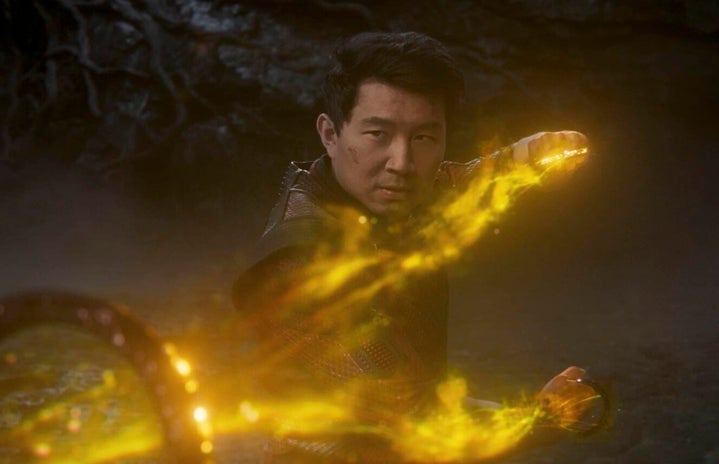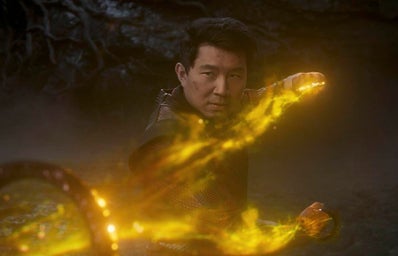Even with a delayed release from the COVID-19 pandemic, Marvel’s Shang-Chi and the Legend of the Ten Rings (2021) still achieved massive success, becoming the 8th-highest grossing film of 2021.
As an Asian American, I should have been first in line to go see it in theaters. But as I am also a frugal homebody, I elected to wait until it became available on Disney+, which I already pay for.
I also watched this with my (white) boyfriend, and two of my Vietnamese American friends who had already seen it before and raved about it.
I had high hopes, but I went into the movie with a more cynical eye. Hollywood has not been kind to BIPOC stories or creators, but with a cast including Simu Liu, Awkwafina, Michelle Yeoh, and Tony Leung, I thought there was no way it could flop. I’d also watched and loved Crazy Rich Asians (2018) earlier this year, so I’ve also been riding a high off the amount of representation I was seeing.
The first thing I really enjoyed was the fact that much of it was actually in Mandarin. I have a big issue with movies that include characters from other countries who clearly would not speak English amongst each other in a normal setting, and only do so for the benefit of the white characters/audience. I thought it added to the authenticity and made the movie feel less like it appropriated Asian cultures.
My friends and I even joked that the styling at times reminded us of cheesy Chinese dramas. The ideas surrounding nature and balance were especially endearing. But we also related to things like the temples, the shrines, the heavy emphasis on filial piety.
Honestly, I think the main joke we kept making surrounded how Simu Liu’s Shang-Chi and his sister were raised by their emotionally unavailable father, Tony Leung’s Xu Wenwu. We related hard to the strict expectations and less affectionate dynamic that their family had.
(There’s even a joke among Asian viewers that the most unrealistic part of the movie is when Shang-Chi’s mother tells him she’s proud of him).
This story also highlighted some struggles of specifically Asian ex-pats in America, but I felt that it was very surface level. There is mention of language struggles and bullying in school, but I think the most telling part was more subtle – Shang-Chi anglicizes his name to “Shaun,” which is a common practice for Asian kids growing up in schools – they pick an “English” name for school/work purposes, and go by their given name at home and in their community.
Again, I felt like more could have been done on the social commentary aspect, but I also recognize that this movie emerged during a time of still rampant Sinophobia from the COVID-19 pandemic. I would have liked to be able to relate to it like how some were able to relate to the release of Black Panther (2018).
Could I have liked it more? Could it have been better? Probably, but this is an instance where I still enjoyed it and unfortunately, as a member of a group with hardly any representation in media, I have to take what I can get. It was still a story where people looked like me that did well commercially, and that’s an accomplishment in and of itself.
*I also would like to acknowledge that I am aware of Simu Liu’s problematic unearthed Reddit posts, which made it hard for me to impartially review this movie. I encourage anyone who is curious to research for yourself, because just because he is a prominent actor does not mean he gets a pass for that behavior.


